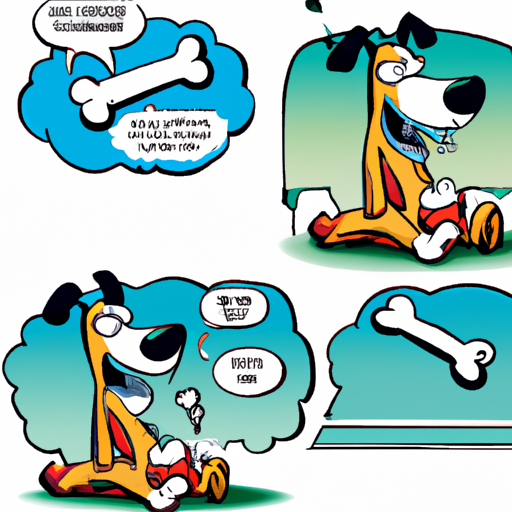Dogs have an innate need to chew. The act of chewing provides them with both physical and mental stimulation, and it’s an essential part of their overall well-being. But why do they like to do it so much? Let’s delve into this fascinating canine behavior.
1. Chewing for Dental Health
Just as brushing your teeth is crucial for you, chewing serves a similar purpose for dogs. When your furry friend chews, it helps to remove plaque and tartar from their teeth. It also strengthens their jaws and keeps their gums healthy.
Consider these facts:
– Puppies have 28 deciduous teeth, which fall out as they grow. Chewing helps them relieve the discomfort of teething.
– Adult dogs have 42 permanent teeth. Regular chewing maintains their dental health.
| Age | Number of Teeth |
|---|---|
| Puppy | 28 |
| Adult | 42 |
2. Chewing as a Stress Reliever
Just like you might find solace in a good book or a warm cup of tea, dogs find relief in chewing. It can soothe anxiety and keep your pup’s mind occupied, especially when they’re alone or in a stressful situation.
- Anxiety: Chewing releases calming hormones in dogs, helping them cope with anxiety.
- Boredom: Chewing keeps dogs mentally stimulated. It’s a productive way to pass the time when they’re alone.
3. Chewing for Nutritional Benefits
Your dog’s diet plays a crucial role in their chewing habits. Dogs, especially puppies, might chew on things to explore their world and get the nutrients they need.
Here are some common reasons:
1. Calcium and phosphorous: Dogs need these minerals for strong teeth and bones.
2. Vitamins: Dogs might chew on grass or plants to get essential vitamins.
4. Chewing as Play
Chewing can also be a form of play for dogs. Just as children love to play with toys, dogs enjoy chewing on them.
- Interactive toys: These types of toys engage your dog’s mind and keep them entertained.
- Chew toys: These specifically designed toys satisfy your dog’s natural urge to chew.
5. Chewing as an Instinct
Lastly, never forget that dogs are descendants of wolves. Chewing is an instinctual behavior that comes from their wild ancestors.
- Hunting instincts: Chewing helps dogs practice their hunting skills.
- Food instincts: In the wild, wolves chew their food thoroughly before swallowing.
Frequently Asked Questions
Q: Is it normal for my dog to chew on everything?
A: While it’s normal for dogs to chew, excessive chewing can be a sign of anxiety or other issues. It’s best to consult with a vet or a dog behaviorist.
Q: How can I discourage destructive chewing?
A: Provide your dog with a variety of chew toys. If the destructive chewing persists, consider seeking professional help.
Q: Should I worry if my dog chews on grass or plants?
A: Occasional grass eating is not usually a cause for concern. However, some plants can be toxic to dogs, so it’s important to monitor what they’re chewing on.
In conclusion, your dog’s chewing is a natural behavior that provides numerous benefits. Understanding these reasons can help you better cater to your dog’s needs and ensure they lead a happy and healthy life.



